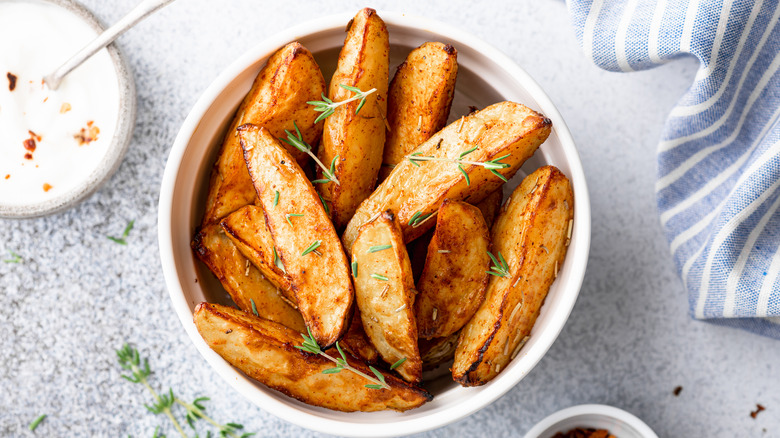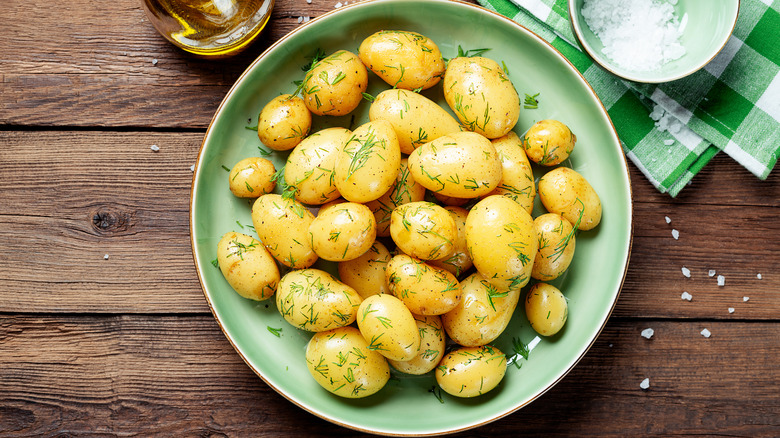Blanching Vs. Parboiling Potatoes: What's The Difference?
The world is obsessed with potatoes. Ever since it was transported globally when Christopher Columbus took to the seas in the late 1400s, the tuber gained incredible popularity in Europe. By the year 1750, the potato had spread across Ireland and had become the core crop in the diet of farmers, via Wesley Johnston. The potato has been distilled into vodka, mulched into fertilizer, to thicken soups, make bread, and ... well, you get the picture. Once people got their hands on potatoes, there was no going back.
Potatoes are some of our favorite underground plants because they are cheap, easy to cook, and super nutritious. UC Davis considers the potato a starchy vegetable, it has a lot of calories and less fiber and makes people feel full when they eat them! These veggies can come in all colors and sizes, and are full of disease-fighting antioxidants so we should absolutely be consuming them regularly, per Healthline. And when it comes to cooking these round tubers, there are a lot of ways to go about it.
Two different outcomes
Some recipes call for you to blanch your potatoes and some call for parboiling. Many people mistakenly believe that blanching and parboiling are the same, but while both these methods use boiling hot water to cook the tuber, they have different intended results.
According to Love Potatoes, parboiling potatoes involves boiling them for around ten minutes until the outside is soft and ready for roasting, whereas the act of balancing a potato is even quicker and is not meant to soften the potato. Bob's Red Mill says that the blanching process involves bringing the potatoes to a roiling boil and then immediately removing the vegetables from the hot water into an ice bath which stops the cooking process.
Blanching is often performed before potatoes are to be frozen or in the case of French fries, it is performed in order to allow the starch to gelatinize and improve the texture of the fry, per French Fries Machine. Parboiling, on the other hand, allows for your potatoes to cook faster and helps to create a crispy texture upon the potatoes' second cooking cycle whether you decide to grill, bake, or roast them (via Bob's Red Mill). Parboiling and blanching accomplish two different things and are not interchangeable because blanching simply preserves the potato's qualities while parboiling partially cooks and softens it.

